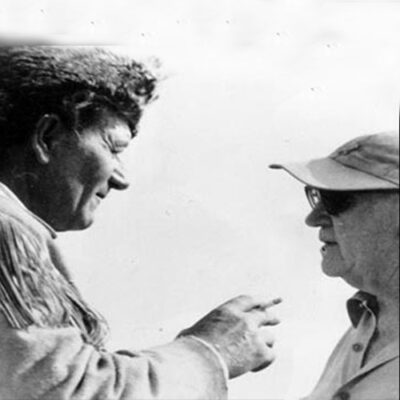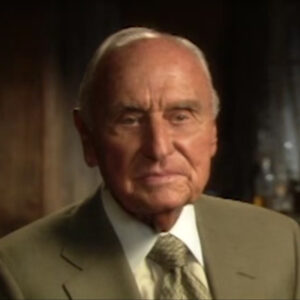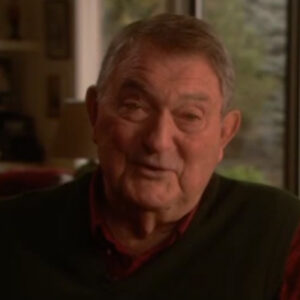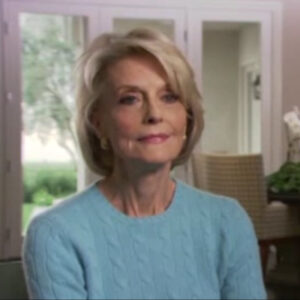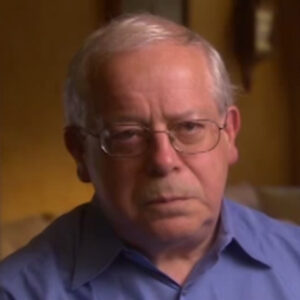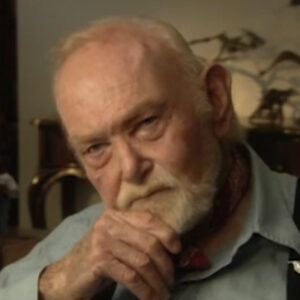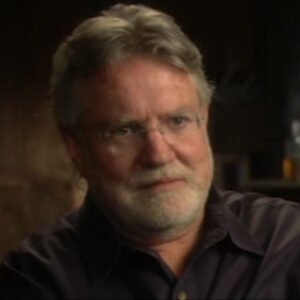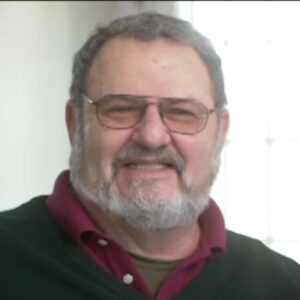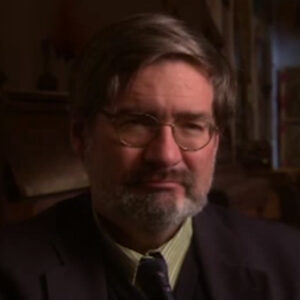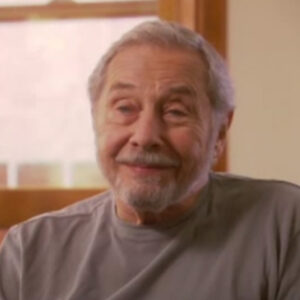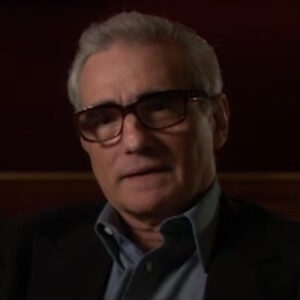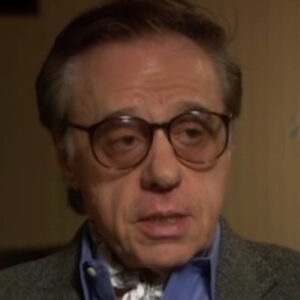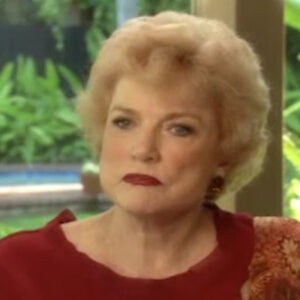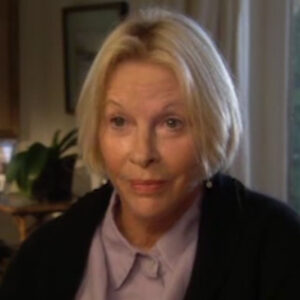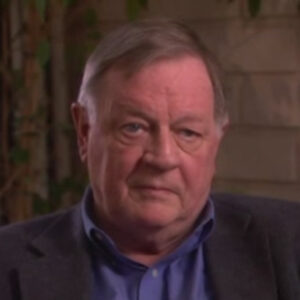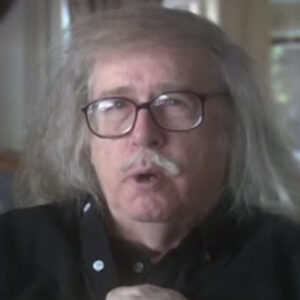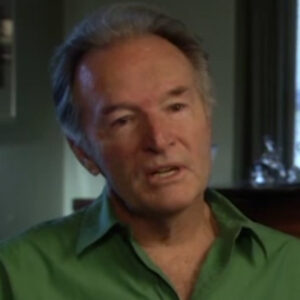Speaker How did it come about, that forecast you for real?
Speaker Well, I was casted I was living in Nashville, Tennessee, in 1950, my contract at MGM that had ended, and I returned to live there. And I received a call from my agent who said that John Ford wanted to interview me for for one of his movies. And my father and I flew to Los Angeles and went to Republic Studio. And I spent about a half an hour with him and he said, You’re my man, you’re my boy. So that was it. And I went back, returned to Nashville and then came back when we actually began to film.
Speaker What did you know about John Ford as a young man when you went out there to the audition?
Speaker John Ford to me was was someone whose movies I had seen I don’t know what I really appreciated is his true value until later in my life. I’d obviously seen his films and I thought, you know, highly of them, but I really wasn’t. That turned on to him as I later became.
Speaker And it was the location.
Speaker It was shot Rio Grande was shot in Moab, Utah. And most of the all the exteriors were shot there. And we were I believe we were there for about six to eight weeks. And I was remember returning because we we we drove from Moab to Grand Junction, Colorado, to fly back on this DC six, which was a prop plane. And all I can recall is it was the longest flight I’ve ever had because John Wayne and John Ford were smoking these huge cigars and I just sick the whole way back.
Speaker What was a typical day like on the job for itself?
Speaker Can you describe a day on a Ford set to me was always an adventure. I had heard lots of stories about Ford. I had heard that one that you didn’t need to learn your dialogue because you’re going to end up seeing lines that aren’t in the script. That never happened with me. I pretty much knew my lines and I don’t think there was that much change, although a lot of different things that were were settled before that. It was always fun for me because it was always a joke that day as to who he was going to pick on because he always loved to single out someone and ridicule them or get on their backs. And in this particular film, it was Ben Johnson who was a recipient of his of his. Dagres, do you remember an example of when Alan Johnson during the making I can recall him getting on then one day when he flubbed his line about three times and he came over to him and he just said, forget the lines, just get on the damn horse. And he just it was just that way with him, you know? And of course, Ben had been he was a he was a veteran of Ford films, and no one took it that seriously.
Speaker People said that Ford would have and he was playing the accordion in the early morning of a Saturday afternoon tea, was that well, a day on the set was, as I said, was always something new.
Speaker And he did have the music in Rio Grande. Of course, we were very fortunate because the sons of the pioneers were in the movie and these guys loved to sing and they were always singing. And Stan Jones, who was also in the film, who had written ghostwriters in the sky. And so there’s a lot of music around. And when people were sitting around, these guys were always playing. I think that that you guys, you and Toby carry a Ben Johnson ended up singing and it was in the script we sang in that which is a joke for me to be singing, but it was part of the script. We all had this little line in the tent where we were waiting for Maureen O’Hara to come in and it was part of the script.
Speaker How many takes it really takes it for what you usually do?
Speaker John Ford was never one to waste film and I think probably in that particular scene we did it four or five times, you know, because he did close ups and did some other other shots around it.
Speaker And how do they treat you? I mean, you know, obviously one for the road, how they treat you doing the actual shooting.
Speaker I was very fortunate because John Ford was was extremely nice to me. And in fact, it created some some real funny, interesting instances with with the other crew, particularly Ben and Dhobi Kerry, because he would always single me out as saying, look, look what this kid can do. Can’t you do that? So it was always like, you know, your snide little kid get out of the way.
Speaker And what was the relationship with me besides those moments was the movie. It seems that your relationship with the Chinese guy, Ben Johnson’s character, Tyree, is pretty close for the you know, for for this.
Speaker How was it the Ben Johnson and Harry Carey Jr. with two of my all time favorite people? I love being around them. And then, of course, and then a stuntman, he was a great horseman. He was I got much closer to Dobie.
Speaker There’ll be Carey. In fact, we kept we kept up contact throughout the years. And I just love the guy and just thought he was he was he was just a great human being.
Speaker John Wayne, by this point in his career, he had been in five or six Ford films, Stagecoach Long Voyage Home for the past, as well as John Wayne, like on that set for you as you on the set.
Speaker John Wayne was very professional. I never was as close to him as I was with with Dobie.
Speaker And and and then he pretty much.
Speaker Kind of stuck to himself. I never really thought he would, you know, sit around sometimes, but he was always pretty much into his own thing and he was great to work with. You know, he was very always knew his lines.
Speaker I mean, the scenes that I had with him just went like clockwork, you know, the scene in the tent with him. And you walk. Right. And and the scene when when I pull the hair out of his chest, you know, and I mean, he was great to work with.
Speaker But, you know, what was your relationship like that?
Speaker You know, hair was again, was was very gracious, very, very wonderful person. There wasn’t anybody in that film that created problems. The person I really was just totally captivated by was Victor McGlocklin. Sit around, tell stories. I had no idea whether they were true, talked about how he was a heavyweight champion of Canada, how he was the police chief of Casablanca. I mean, who knows? But he was he was a great storyteller. Whatever it was, it was a great half.
Speaker He said everybody’s happy about it. So I thought everyone had a great time for it.
Speaker How did they I mean, one of the great things in this film is the Roman writing scene. You know, we a good jobs and ride the horses that teach them about that. You guys are actually doing the writing, really writing.
Speaker About two weeks before we started production, I was called into Ford’s office and he want to know if I had ever done any of Roman writing. I know what he’s talking about. And he said, I would like to see if you can can do this. And I want you to go out to, I guess, the ranch out in the valley where all the horses were. And I want you to work out and see if if you can do this. And I went out in about two weeks, I was able to get up on the horses and and go around.
Speaker And it was really didn’t seem that difficult. And I thought the one thing that I always admired about Ford, which I have totally loved, was when he actually filmed it, he he made sure that people knew that I was actually doing that because there was never any cut of the scene shows you getting on the horse, staying on the horse and going all the way around. So I thought that was great, that he was able to to ensure that somebody said, oh, it’s just a stunt stunt guy did it on your take and it took you two weeks.
Speaker Then and and be I don’t think probably Benteke as long, probably, though, took a little longer, but of course they were more expert horseman than I was, but they certainly worked at it at least as long as I did the last.
Speaker And everybody told me to tell the Fort Wayne story. You know, I’m going to try to use the film. I mean, you just told one about this guy’s was another fraud waste away that you have that?
Speaker Well, the one that that I that I ran that, you know, a Wayne story and forward that that I remember and and I remember it vaguely. So I think it should be authenticated a little bit more. But at the time we were making the movie and we were on the on the stage at Republic and and John Wayne was having a beef with her voice, had a republic over some money that he felt they owed him for a picture that he had made previously. And one day Wayne said, I’m not going to come to work. And this was kind of unheard of. And they went to Ford and said, we have this problem with Wayne. Can you shoot around him? And John Ford said, no, we’re not going to work until you quit meddling around with my hired help here. And I’m using that word. And so that sort of forced the settlement that Wayne was looking for. But obviously he supported his actors and he supported Duke in that particular situation. And I know it was an indication of the of the bond that these that these two guys had.
Speaker You that worked, you had gotten into the business when the year with Clarence Brown, you work for Clarence Brown, the intruder in the dust. If I had to ask you to compare the working styles of these two directors, what would you say about the difference between working for Ford and working for Clarence Brown?
Speaker I if I had to compare the styles between Clarence Brown, who made two films with intrude on the in The Yearling and Rio Grande, I would say it was night and day. Uh, John Ford was more try to get the feel, let it flow. You would take take a scene maybe two or three times working with Clarence Brown, total perfectionist. The average take was probably 20 times and in the helium’s probably more than that. So it’s much more difficult working with it with Clarence Brown. If it wasn’t for it, Ford was. He would make it work, how it worked, he had the vision and he would make it work.
Speaker What was the last day like on the set of the scene, the last scene that you shot for that film?
Speaker The last day we were filming, we were on on the stage. We were filming there. And I think it was all pretty much all kind of excited that we’d had a great, great time together and that I was hoping that I would work for Ford again. I never had the opportunity again, although I did see him a couple of times and he was always asking about me and what was going on in my life. But I never had the opportunity to work with him again. But I was really hoping I could.
Speaker Why the last time you saw John Ford?
Speaker Last time I saw John Ford, I think I was on the set of the horse soldiers and I was in the Navy at that time and I was in my lieutenant, J.G. uniform, and he did a double take. He says, I got it. I haven’t seen a lieutenant junior an incident in 30 years. So he was he was very impressed that I was that was in the Navy because, of course, he was a very active participant in the in the services.
Speaker How did you how how this were the circumstances that led you to be on the soldiers?
Speaker I happened to be in Los Angeles, and I believe I just called and said, I want to come over and visit because I knew that a lot of the people were there. So I went over to the set and spent a couple hours. And I think there was a party later on at at Ford’s house that I went to during that period.
Speaker I think I have it right in the thick of it now.
Speaker Yeah, uh.
Speaker With the Rio Grande, the airline worked after having worked with Ford and Wayne, did you did you follow their you know, how their careers progressed? And did you have any impressions or how close or how you thought?
Speaker I think my mom just a lot of hearsay.
Speaker I think that there were some some problems later on that that Ford is Wayne became a bigger star.
Speaker I think he.
Speaker Began to resent being picked on by Ford, and I think there probably some other people who might have more stories about that, but I think there were some cases as far as Ford got older, he got a little more cantankerous than than normal. And I think this was true probably with Henry Fonda and some of the other actors who he had worked with throughout the years. And as far as he is engaged, I think that I’ve heard that there were some issues that they had in working with him, because I know Wayne was working at probably less salary than he would normally get because he wanted he appreciated all that Ford had done for him and that maybe there was some, uh, you remember, on the said to be of any particular specifically between Wayne and for that stands out to you on the set. I never I don’t think there were any issues that I can recall that they ever had. That was a very harmonious relationship that they had during the making of that film.
Speaker I mean, we got that. A. Thank you. Please be quiet for 30 seconds, please.
Speaker Absolutely. And what this does not even relate to for this is a personal question, just keeps you this what you think it is. I get what you sort of tell us about the experience of working to ensure that it does do it. And then there’s the right.
Speaker Well, one of my probably my favorite film I ever did was intrude in the dust because I it was a it was a fascinating story and it was an important story. And it was a film was made in Oxford, Mississippi, in 1949. And again, it was Clarence Brown who was very adamant in having this film made. And MGM was very much opposed to it because they thought it would never make a dime, that it was dealing with race relations in the South. And and it was something that wasn’t was being swept under the rug and that Clarence had insisted and they gave him a limited budget to do to make the film. And we filmed it in its entirety in Oxford, Mississippi. And it was one of the first films really that were made entirely on location and it was made with an open camera because they want to move quickly and and it was just able to get a soundtrack and getting a soundtrack. We had to come back and dub the entire film. But in working with one Hernandez, he was just a fantastic actor and, you know, obviously stole the film. And it was it was just very interesting because William Faulkner was on the set many times as opposed when he made The Yearling Magic. Controllers never came around. And yet he was he was on the set and he and Clarence Browne developed a very close relationship. And I spent a lot of time with his daughter Jill, and would go out of their house in the evening.
Speaker And it was just a very, very interesting experience for me. And I was always disappointed because I was the film got great reviews, but MGM just buried it. They just put it right under the rug and didn’t want to deal with it. And, uh, they write it didn’t make any money. They did when the British Film Critics Award and won. You know what? A lot of interesting things. But it was it was really a very, very wonderful experience.

